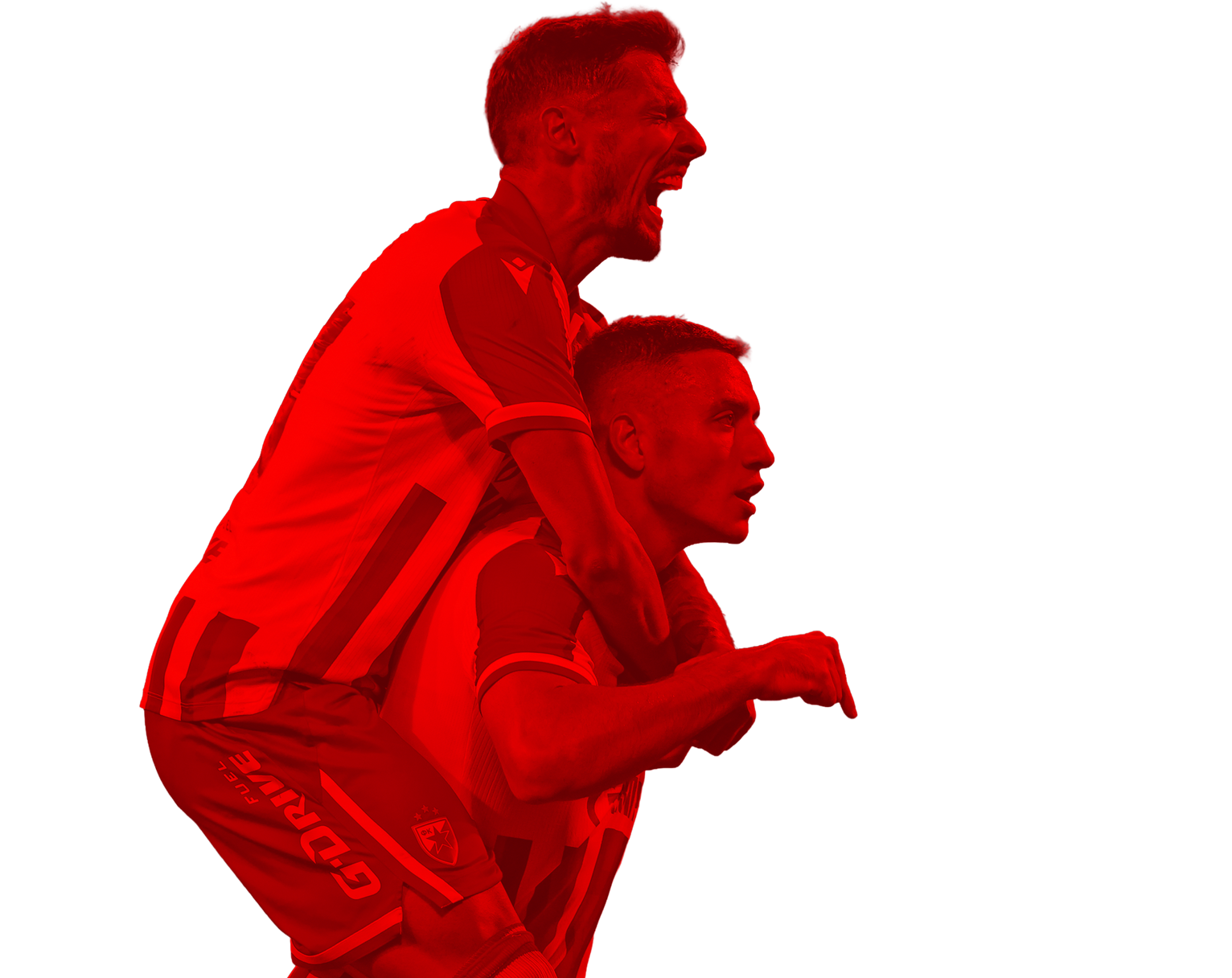
Dragoslav
Šekularac

.avif)
Biography
Dragoslav Šekularac was born in Štip on November 8, 1937, and with his goals and performances in Zvezda's jersey, he deserved to be in the shortlist for the best player of the Belgrade club of all time.
In 369 matches for Red Star, he scored 115 goals, won five championship titles and three cups. As coach of our club in the 1989/90 season, he won the double crown, creating a team that won the Champions Cup and the Intercontinental Cup the following year. "The King of Dribbling", the second Red Star Zvezda , behind Rajko Mitić, was a national team player when Yugoslavia was the Olympic champion, fourth in the world and second in Europe.
No one before and after Šekularac had such a great talent for the ball. Due to his talent and devotion to football, "Shaki" was simply destined to reach a high class and become an ace of the world format. Ambitious and in love with football, he was an incorrigible optimist, and when he first stepped into the junior team of Crvena zvezda, he had the courage to say loudly in front of coach Miša Pavić, who promoted him to the first team at the age of 17: "Today there are only three great footballers. on the planet, namely Di Stefano, Puskas and Dragoslav Shekularac".
When Dimitrije Milojević, the popular "Čika Mitke", saw Šekularac in the yard of the Second Male Gymnasium, he immediately sent him to Crvena zvezda. He saw extraordinary giftedness in the mischievous man with crooked legs. From the start, Šeki brought the fans to ecstasy, because he quickly became a football player of bravado, jokes, spirit and imagination. Unique in many ways.
I owe a lot to Crvena zvezda, which influenced my character.
In the club, I learned that I should shave every day, to be clean and perfumed, and not to sip soup, how to behave in the company of men, and how to behave in the company of women
Dragoslav Šekularac
%201%20(1).avif)

Challenged by his father, who directed him to school and was against football, Dragoslav, like every time in his life, got his way. In Zvezda, much older and more recognized players awaited him, which was only a motive for him to prove himself.
- I remember the match, the ball was with me and I "called out" Branko Stanković, and I passed the ball to the other side and made a mistake. At half-time he came up to me, slapped me hard and I cried. At the next training session the coach put us opposite each other and he didn't touch the ball at all. Later, when he became the coach, he kept "advising" me to play like I did against him. Who knows if I would have done anything to Zvezda did not go on a tour of America to earn money, and we from the other team stayed in Belgrade. I took advantage of that chance to the fullest, the whole of Belgrade was talking about some new kid, who was playing great, so for example, two people watched me in the first game, five in the second, and 15,000 in the third - recalled Sheki. He especially emphasized the positive balance in the derbies with Partizan, in the games that he considered the most important in his career. He had a virtuoso technique, great overview of the game and mastery that few managed to copy, but he always wanted to influence the game and the result. To be the central figure like in the cup final won in 1959 against Partizan. He had a specific temperament, always fought for truth and justice, did not think about the consequences, reacted with his heart, not his mind, and as a result, he was suspended after a match in Niš for punching referee Pavle Tumbas in the fall of 1962. The federation did not care that Sheki was, according to many, the first name of the 1962 World Cup in Chile, but instead suspended him from football for two years!
Upon his return, he won his fifth title with Zvezda in 1964, and then injured his spine, so he left for Karlsruhe in 1966. He then played for Saint Louis, then OFK Belgrade, Santa Fe, Atletico Bucaramanga, Milonarios, America de Cali, Paris and in 1975 as a player-coach for the Canadian "White Eagles". He loved life, lived and played outside the rules. That's why he was unique.
He played 41 matches for the national team and scored six goals. He made his debut on 30 September 1956 against Czechoslovakia, and his last match was on 1 June 1966 when Bulgaria was visiting Belgrade. He played in two World Cups, in 1958 in Sweden and four years later in Chile, where he achieved the best finish in history with the Yugoslav national team – fourth place. Chroniclers of the time say that Sheki was above all others in terms of his play. Zvezda and that he, not Garrincha and Amarildo, should have been awarded the award for the best player of the World Cup.
He built his coaching career in Canada, and arrived at "Marakana" in 1989 and immediately won the double crown. The team with the first star Dragan Stojković was supplemented by Dejan Savićević, Darko Pančev, Miodrag Belodedić and Ilija Najdoski. Šeki knew that this was the team to win the Champions Cup, but in the second leg of the UEFA Cup against Koln, his nerves worked again, so he earned eight games from UEFA. The team that Ljubomir Petrović started to create led to the greatest achievements the following season. His coaching journey took him to America, Al Nasser, Heidelberg, Marbella, Busan, Obilić, and in the end he reached the beginning of the "White Eagles".
The man who turned football into art died on January 5, 2019.
PHONE FULL - RED-WHITE
DOWNLOAD THE NEW APP.
.png)
.avif)

%201%20(1).avif)
%201%20(1).avif)
%201%20(1).avif)
%201%20(1).avif)


